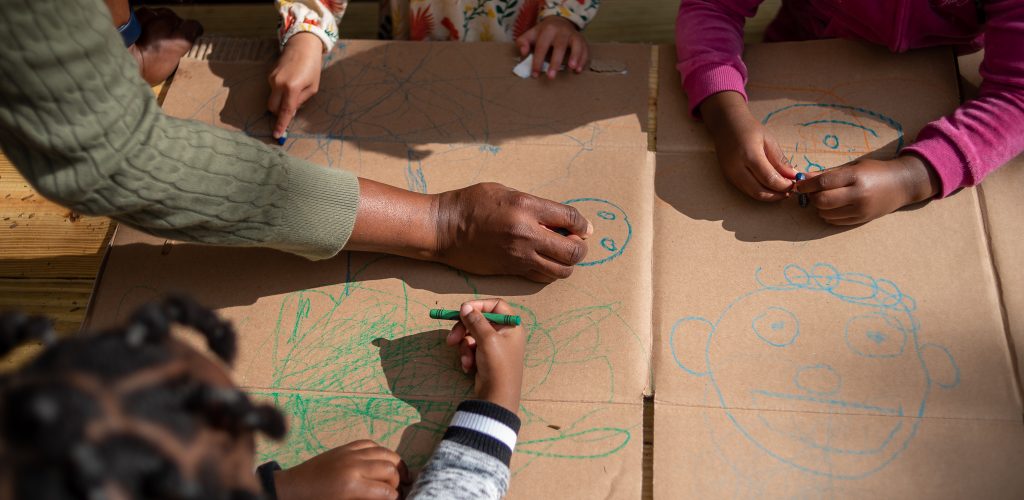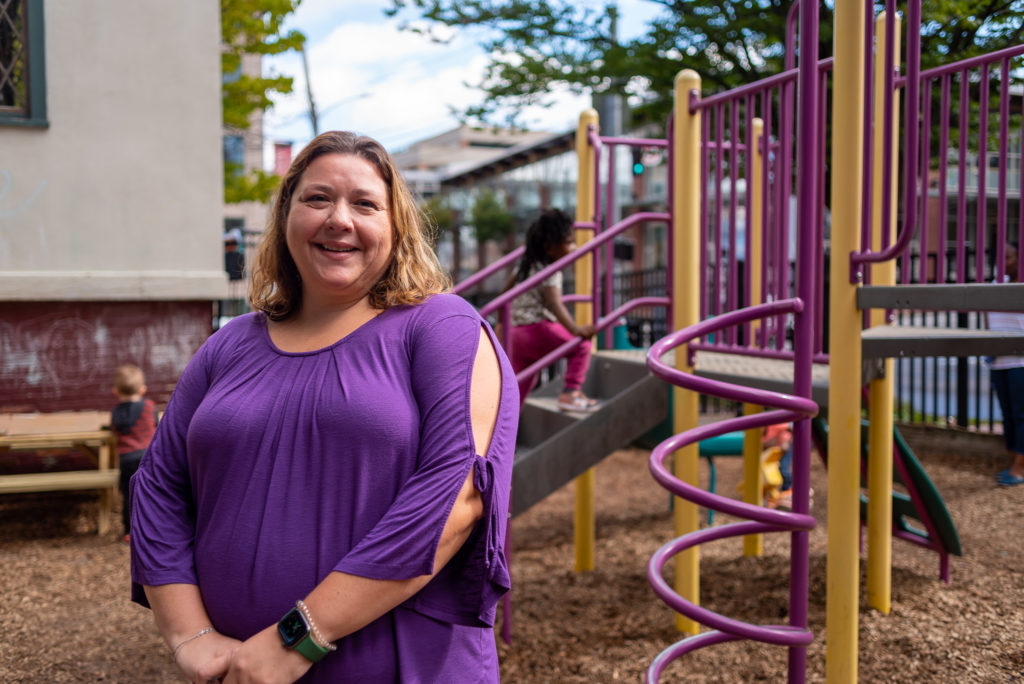Michelle and “Lynn” shared their stories as part of MECEP’s State of Working Maine 2022 report. Click here to view the full report, as well as other workers’ stories.
Michelle Belanger is the program coordinator at Youth and Family Outreach in Portland. The nationally accredited child care center’s 15 employees serve 58 children ages 6 weeks to 5 years old. Michelle has worked in many different capacities during her 25 years in early childhood education, including as a Pre-K and toddler teacher. She has worked at Youth and Family Outreach for 14 years.

“Since the pandemic started, I’m seeing parents really struggle to make ends meet. Since our staff and many of our families can’t do their jobs from home, both groups of parents had to find care for school-aged children when schools went remote. Quarantine periods meant that children couldn’t attend care up to 14 days at a time and parents — including our staff — couldn’t work.
As we’re coming out of the pandemic, gas, rent, and inflation are forcing many educators out of the field for higher paying, less stressful jobs that offer more flexible schedules. Many child care facilities have gone out of business or reduced services because of staffing shortages. The prospects for the field are slim. College students want to work in public schools, for the money, the schedule, and the respect that comes from being a “teacher” in a school versus a teacher for kids under age 5.
The field can’t compete. Who wouldn’t want summers off? But guess who wouldn’t be able to teach in a public school if they couldn’t drop their 2-year-old off at child care? Teachers.”
“Lynn” is one of the educators at Youth and Family Outreach who works with two and 3-year-olds. She is an asylum seeker who came to the US with a degree in pedagogy from the Democratic Republic of Congo and has 10 years of experience as an early childhood educator.

“When schools went remote, we lost so many families. Now as that challenge seems to ease we’re facing a shortage of teachers and an even higher demand for child care. We have longer wait lists and less quality time to spend with each child. It adds more stress on us, less planning time, less effective teaching.
Low pay is the biggest challenge educators face right now. We build a big part of the foundation children need to succeed in school. We prepare them to be independent, express their feelings, listen to teachers, hold writing materials, and more. But we are not recognized for it. This is a job I went to school for here and back in my home country. But I’m unable to provide for all the needs of my family. I have a hard time staying. It is a constant battle between my heart and my brain.”




